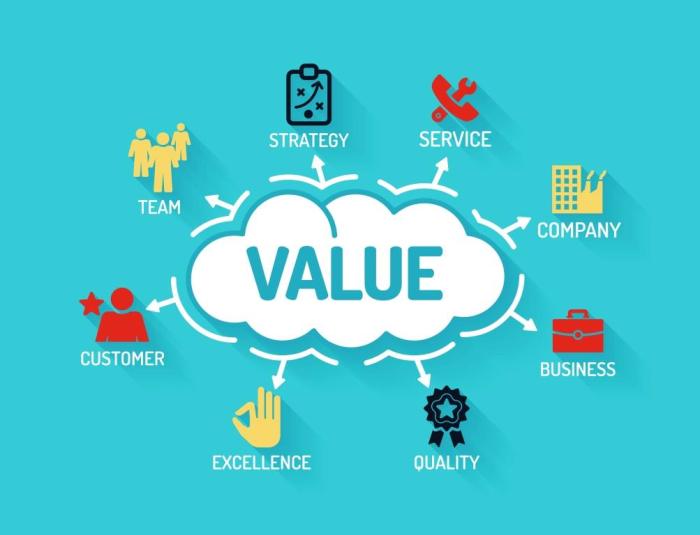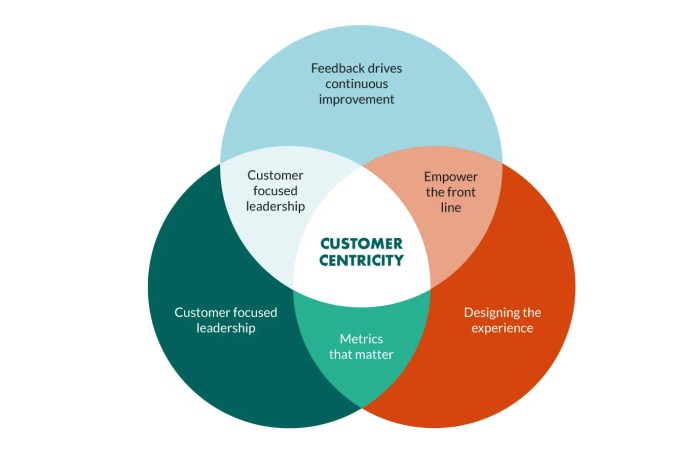Finding purpose and meaning in a materialistic modern world feels like navigating a maze. We’re bombarded with messages telling us happiness lies in the latest gadgets, the biggest house, or the most luxurious car. But beneath the surface of consumer culture lies a deeper yearning – a desire for something more substantial than fleeting possessions. This exploration delves into the psychological roots of materialism, the societal pressures that fuel it, and ultimately, how we can cultivate a life rich in purpose and meaning, independent of material wealth.
We’ll examine the historical context of materialism, tracing its evolution through different eras and exploring how societal values have shifted. We’ll then explore alternative paths to meaning, including fulfilling relationships, creative pursuits, and contributions to something larger than ourselves. This journey will equip you with practical strategies to resist consumerist pressures and cultivate inner resources that lead to a more authentic and fulfilling life.
The Allure of Materialism

Source: catalystforbusiness.com
Finding purpose in today’s materialistic world can feel like a constant uphill battle. It’s easy to get caught up in the endless pursuit of “things,” but true fulfillment lies elsewhere. Check out this article on Achieving a fulfilling luxury lifestyle beyond material possessions to see how a richer life isn’t necessarily about accumulating more stuff. Ultimately, defining your own values and pursuing meaningful experiences is key to a truly satisfying life, regardless of your financial status.
The relentless pursuit of material possessions is a defining characteristic of modern life. This seemingly insatiable desire isn’t simply about acquiring things; it’s deeply intertwined with complex psychological mechanisms, societal pressures, and cleverly crafted marketing strategies. Understanding these forces is crucial to navigating our materialistic world and finding a more fulfilling path.
Finding purpose in our materialistic world can be a challenge, often leaving us feeling empty despite outward success. One way to reconnect with yourself and discover deeper meaning is through experiences that nourish the soul, not just the ego. Consider exploring unique opportunities for self-discovery, such as the enriching solo journeys offered by Luxury lifestyle travel experiences for solo travelers , which can help you redefine your values and priorities, ultimately leading to a more fulfilling life.
These adventures often provide a powerful reset, allowing you to return with a renewed sense of purpose.
Psychological Mechanisms Behind Materialism, Finding purpose and meaning in a materialistic modern world
Materialism taps into several fundamental psychological needs. The acquisition of goods can provide a temporary sense of happiness and accomplishment, fulfilling a need for self-esteem and status. This is amplified by the inherent human tendency towards comparison – constantly evaluating ourselves against others, often based on perceived material wealth. Furthermore, materialistic values can offer a sense of control and security in an uncertain world; the belief that owning more will somehow shield us from life’s challenges.
However, this is often a fleeting and ultimately unsatisfying illusion, leading to a continuous cycle of wanting more. The constant bombardment of advertising further reinforces these desires, associating products with happiness, success, and social acceptance.
Societal Pressures and Marketing Strategies
Modern society heavily emphasizes consumerism. From the media’s portrayal of idealized lifestyles to the ubiquitous presence of advertising, we are constantly exposed to messages linking happiness with material possessions. Marketing strategies employ sophisticated techniques to manipulate our desires, utilizing emotional appeals, celebrity endorsements, and carefully crafted narratives that create a sense of urgency and scarcity. Social media further exacerbates this, creating a culture of comparison and validation-seeking through curated online personas often built around the display of material wealth.
This creates a pressure to keep up with trends and acquire the latest products, regardless of their actual need or value.
Historical Perspectives on Materialism
Historically, the relationship between humans and material possessions has been far more nuanced than the rampant consumerism of today. In many pre-industrial societies, possessions were often viewed more pragmatically, primarily serving functional needs rather than signifying status or self-worth. While displays of wealth existed, they were typically tied to social roles or religious significance, not the individualistic pursuit of accumulating goods for their own sake.
The industrial revolution and subsequent technological advancements drastically altered this dynamic, creating mass production and widespread access to a wider range of goods. This shift fueled a new era of consumerism, fundamentally changing the relationship between people and their possessions. The rise of global capitalism has further intensified this trend, creating a system that thrives on perpetual consumption.
Evolution of Materialism: A Historical Overview
| Historical Period | Dominant Values | Material Manifestations | Psychological Impact |
|---|---|---|---|
| Pre-Industrial Societies (e.g., hunter-gatherer, agrarian) | Survival, community, spiritual beliefs | Basic tools, shelters, ceremonial objects | Strong sense of community, reliance on nature, focus on functional needs |
| Industrial Revolution (18th-19th centuries) | Progress, innovation, efficiency | Factories, machinery, mass-produced goods | Increased social mobility, but also growing inequality and alienation |
| Early 20th Century | Mass consumption, conformity | Household appliances, automobiles, standardized housing | Desire for comfort and convenience, but also conformity and a sense of anonymity |
| Late 20th & 21st Centuries | Individualism, status, self-expression | Luxury goods, technology, personalized experiences | Increased emphasis on self-image and social status, but also anxiety, debt, and dissatisfaction |
The Search for Meaning
The relentless pursuit of material possessions often leaves a void, a nagging sense that something is missing. True fulfillment isn’t found in accumulating wealth, but in discovering and pursuing a purpose that resonates deeply within us. This search for meaning, a quest for a life beyond the superficial, is a journey undertaken by countless individuals across cultures and throughout history.
Understanding this journey requires exploring different perspectives on purpose and the various avenues available to find it.
Examples of Purposeful Lives Beyond Material Wealth
Many individuals have demonstrated that a life of purpose and meaning isn’t contingent upon material wealth. Mother Teresa, for instance, dedicated her life to serving the poorest of the poor in Calcutta, finding profound fulfillment in acts of selfless service. Similarly, Malala Yousafzai, despite facing immense adversity, champions the education of girls worldwide, demonstrating that purpose can be found in fighting for a greater cause.
These individuals, and countless others like them, exemplify the power of purpose to transcend material limitations and bring profound satisfaction. Their legacies are not measured in monetary terms but in the positive impact they have had on the world.
Philosophical and Spiritual Perspectives on Meaning and Purpose
Philosophers and spiritual leaders throughout history have grappled with the question of meaning and purpose. Existentialists, such as Albert Camus, emphasized the importance of individual responsibility in creating meaning in a seemingly meaningless universe. They argue that purpose is not inherent but is constructed through our choices and actions. In contrast, many spiritual traditions propose that meaning stems from a connection to something larger than ourselves – a divine being, a universal consciousness, or the interconnectedness of all life.
These perspectives, though diverse, share a common thread: the belief that a meaningful life is actively created, not passively received.
Diverse Approaches to Finding Meaning
The path to discovering meaning is deeply personal and multifaceted. For some, it lies in cultivating strong and loving relationships with family and friends, finding solace and support in shared experiences and mutual affection. Others find meaning through creative expression, whether it be painting, writing, music, or any other art form that allows them to express themselves and connect with others.
Many find their purpose in serving others, volunteering their time and talents to causes they believe in, making a tangible difference in the lives of those around them. These are just a few examples; the possibilities are as diverse as the individuals who seek them.
Visual Representation of Interconnected Paths to Meaning
Imagine a large, central sun representing the core concept of “meaning.” From this sun radiate several brightly colored pathways, each representing a different approach to finding meaning: a vibrant red path for relationships, a calming blue path for spiritual practices, a creative green path for artistic expression, a warm orange path for service to others, and a golden yellow path for personal growth and self-discovery.
These paths are not isolated but intertwine and connect, demonstrating that different approaches to meaning are not mutually exclusive but can complement and enrich one another. The sun itself is not static; it pulsates with energy, symbolizing the dynamic and ever-evolving nature of the search for meaning itself.
The Impact of Consumer Culture

Source: co.uk
Consumer culture, fueled by relentless advertising and media saturation, profoundly shapes our values and perceptions of success and happiness. It subtly yet powerfully influences our desires, often leading to dissatisfaction and a perpetual chase for more. Understanding this influence is crucial to navigating the modern world and finding genuine fulfillment.Advertising and media consistently portray a narrow definition of success, often equating it with material possessions, status symbols, and a specific lifestyle.
Finding purpose in our materialistic world often feels like a constant uphill battle. We’re bombarded with messages promoting fleeting happiness through consumerism, but true fulfillment comes from something deeper. Understanding the impact of our choices, like considering the environmental consequences highlighted in this article on Luxury lifestyle and its environmental footprint , can help us redefine what truly matters.
Ultimately, a meaningful life is built on values beyond material possessions.
Television shows, movies, and social media platforms showcase aspirational lifestyles centered around luxury goods, lavish vacations, and opulent homes. This constant bombardment subtly shapes our desires, leading us to believe that happiness is directly proportional to the acquisition of these material goods. This perception is further reinforced by targeted advertising that appeals to our insecurities and desires, promising fulfillment through the purchase of a particular product or service.
The Mechanisms of Consumer Dissatisfaction
Consumerism thrives on creating a sense of inadequacy and dissatisfaction. Marketing strategies often employ techniques like planned obsolescence, where products are designed to become outdated or malfunction quickly, necessitating replacement. This constant cycle of buying and discarding fuels a sense of never quite having enough. Furthermore, the emphasis on novelty and the constant introduction of new products creates a feeling of missing out (FOMO), driving consumers to seek the latest trends and gadgets, even if they don’t truly need them.
This cycle of wanting, buying, and discarding can be emotionally draining and ultimately unfulfilling.
Strategies for Resisting Consumer Culture Pressures
It’s possible to resist the pervasive influence of consumer culture and cultivate a more mindful approach to consumption. Developing these strategies can lead to a more balanced and fulfilling life, less dependent on material acquisitions for happiness.
- Become a mindful consumer: Before making a purchase, ask yourself if you truly need the item or if it’s driven by impulse or advertising. Consider its long-term value and environmental impact.
- Limit exposure to advertising: Be conscious of the messages you’re bombarded with daily. Reduce your exposure to television commercials, online ads, and social media influencers promoting consumerism.
- Prioritize experiences over possessions: Invest in experiences that create lasting memories and personal growth, such as travel, learning new skills, or spending time with loved ones. These often provide more lasting satisfaction than material possessions.
- Cultivate gratitude: Focus on what you already have and appreciate the things in your life that truly matter. This can help shift your focus away from material desires.
- Support ethical and sustainable brands: Choose companies that align with your values, prioritizing fair labor practices, environmental sustainability, and ethical sourcing.
- Engage in hobbies and activities that don’t cost money: Explore free or low-cost activities like reading, hiking, spending time in nature, or pursuing creative endeavors.
Mindful Consumption and a Fulfilling Life
Mindful consumption is not about deprivation; it’s about making conscious choices aligned with your values and needs. By resisting the constant pressure to buy, you can free up resources—both financial and emotional—to pursue activities and relationships that truly enrich your life. This intentional approach to spending can foster a greater sense of contentment and purpose, reducing the reliance on material possessions for happiness and leading to a more fulfilling and meaningful existence.
The shift from focusing on accumulating things to focusing on experiences and personal growth creates a pathway to a richer and more satisfying life.
Cultivating Inner Resources
Finding purpose in a materialistic world requires a shift in focus from external validation to internal understanding. It’s about cultivating inner resources – a deep well of self-awareness, resilience, and contentment that’s impervious to the fleeting nature of material possessions. This involves a journey of self-discovery, learning to listen to your inner voice and understand your deepest values.Self-reflection and introspection are crucial for identifying personal values.
Without understanding what truly matters to you – your core beliefs, motivations, and aspirations – you’ll be easily swayed by external pressures and the allure of superficial achievements. This process allows you to differentiate between wants driven by societal expectations and desires stemming from your authentic self. This clarity forms the bedrock upon which a meaningful life is built.
The Role of Mindfulness and Meditation in Cultivating Inner Peace
Mindfulness and meditation practices help quiet the incessant mental chatter that often obscures our true selves. By focusing on the present moment – our breath, our senses, our thoughts without judgment – we create space for self-awareness to blossom. Regular practice cultivates inner peace, reducing stress and anxiety, and fostering a sense of contentment that isn’t dependent on external circumstances.
This inner calm allows for clearer thinking and a more profound connection to our values. For example, a study published in the Journal of Consulting and Clinical Psychology showed that mindfulness-based interventions significantly reduced symptoms of depression and anxiety.
Practices Fostering Self-Awareness and Emotional Intelligence
Several practices can enhance self-awareness and emotional intelligence, key components in cultivating inner resources. Journaling allows for processing emotions and identifying recurring patterns of thought and behavior. Spending time in nature provides a calming influence and promotes introspection. Engaging in creative activities, such as painting or writing, can facilitate self-expression and emotional release. Actively listening to others, practicing empathy, and understanding different perspectives are crucial for developing emotional intelligence.
These practices, combined with self-reflection, create a holistic approach to understanding oneself better.
Finding purpose in today’s materialistic world can be challenging. We often chase external validation through possessions, overlooking the true sources of fulfillment. But this pursuit often comes with unexpected burdens; check out this article on the hidden costs of maintaining a luxury lifestyle to see how easily the illusion of happiness can unravel. Ultimately, genuine meaning comes from within, not from the things we own.
A Step-by-Step Guide to Identifying Personal Strengths and Passions
Understanding your strengths and passions is fundamental to finding purpose. This process requires dedicated time and honest self-assessment.
- Reflect on past experiences: Consider moments when you felt most fulfilled, engaged, and energized. What activities or situations contributed to these feelings? Analyze successes and failures to understand your strengths and areas for improvement.
- Identify your values: What principles guide your decisions and actions? What is truly important to you? Consider concepts like honesty, creativity, helping others, independence, or family.
- Explore your interests: What topics or activities genuinely fascinate you? What do you enjoy learning about or doing in your free time? Even seemingly insignificant hobbies can reveal hidden talents and passions.
- Seek feedback from others: Ask trusted friends, family members, or mentors for their perspectives on your strengths and weaknesses. Their insights can provide valuable external validation and offer new perspectives.
- Experiment and iterate: Try new things and don’t be afraid to step outside your comfort zone. Explore different fields, activities, or roles to discover what resonates with you. The process of discovery is ongoing, and adjustments along the way are perfectly normal.
Connecting with Others
In a world obsessed with material possessions, the pursuit of genuine human connection often gets sidelined. Yet, strong relationships are fundamental to a fulfilling life, offering a powerful antidote to the emptiness that can accompany a solely materialistic existence. The feeling of belonging, of being truly seen and understood, provides a sense of purpose and meaning that no amount of wealth or possessions can replicate.The benefits of strong social support networks are profound and far-reaching.
These networks act as buffers against stress, providing emotional resilience during challenging times. Having people we can rely on for emotional, practical, or informational support significantly improves our mental and physical well-being. Studies consistently show a correlation between strong social ties and reduced risk of depression, anxiety, and even chronic illnesses. This support isn’t just about having people around; it’s about having people who genuinely care and offer meaningful assistance.
Types of Relationships and Their Contribution to Purpose
Different relationships contribute to our sense of purpose in unique ways. Close family relationships often provide a deep sense of belonging and unconditional love, forming the foundation of our identity and self-worth. Romantic partnerships offer intimacy, companionship, and shared goals, enriching our lives and providing motivation for personal growth. Friendships offer diverse perspectives, shared experiences, and mutual support, fostering a sense of community and belonging.
Even professional relationships can contribute to purpose, providing opportunities for collaboration, mentorship, and a shared sense of accomplishment. Each type of relationship contributes essential elements to a well-rounded and meaningful life, fostering a sense of connection and shared purpose.
Community Involvement and Volunteer Work
Engaging in community involvement and volunteer work is a powerful way to find meaning beyond personal gain. By contributing to a cause larger than ourselves, we experience a sense of purpose and fulfillment that transcends material possessions. Volunteering can take many forms, from helping at a local soup kitchen or animal shelter to participating in environmental clean-up efforts or mentoring underprivileged youth.
These activities foster a sense of connection to the wider community, allowing us to contribute our skills and time to something meaningful. For example, volunteering at a local homeless shelter not only provides essential services to those in need but also offers volunteers a profound sense of purpose and connection to their community, reminding them of the shared human experience and fostering empathy.
Similarly, participating in a community garden provides a space for connection and shared purpose while simultaneously providing healthy food and environmental benefits. The act of giving back, no matter the scale, strengthens our sense of belonging and purpose, fostering a more meaningful life.
Redefining Success: Finding Purpose And Meaning In A Materialistic Modern World
Our modern world often equates success with material wealth – a bigger house, a luxury car, a high-paying job. But this narrow definition leaves many feeling empty, despite achieving these external markers of achievement. True success, however, lies in a richer, more holistic understanding of well-being, encompassing not just financial security but also personal growth, meaningful relationships, and a sense of purpose.
This shift in perspective allows us to prioritize intrinsic motivations over extrinsic rewards, leading to a more fulfilling and genuinely successful life.Focusing on intrinsic motivations, such as personal growth, contribution to society, and the pursuit of knowledge, rather than solely on external rewards like money or status, leads to a deeper sense of satisfaction and fulfillment. This is because these internal drives are deeply connected to our values and aspirations, providing a sense of purpose and meaning that transcends material possessions.
Studies consistently show that individuals who prioritize intrinsic motivations experience higher levels of happiness and life satisfaction than those driven primarily by external rewards. For instance, a volunteer working at a homeless shelter might earn less than a corporate executive, but the sense of purpose and contribution they experience can lead to a greater sense of well-being.
Alternative Measures of Success
Instead of solely relying on financial metrics, we can adopt alternative measures that reflect a broader definition of success. These could include the quality of our relationships, our level of physical and mental health, our contribution to our communities, and the extent to which we’re pursuing our passions and living in alignment with our values. Consider the example of a teacher who dedicates their life to educating young minds.
While their salary might not be extravagant, their impact on future generations and the fulfillment derived from their work are immeasurable. Similarly, an artist who creates meaningful art, even if they don’t achieve commercial success, finds satisfaction in their creative expression and contribution to the cultural landscape.
Intrinsic Motivation and Fulfillment
The pursuit of intrinsic motivations – those driven by internal factors like curiosity, passion, and a desire for personal growth – is crucial for achieving lasting fulfillment. When we are engaged in activities that align with our values and passions, we experience a state of “flow,” a feeling of complete absorption and enjoyment in the task at hand. This state is intrinsically rewarding, fostering a sense of purpose and meaning that surpasses any material reward.
For example, a writer who loves to write, driven by their passion for storytelling, will find greater satisfaction in their work than a writer solely focused on financial gain.
Purpose-Driven Living and Happiness
Purpose-driven living is about aligning our actions with our values and beliefs, leading a life guided by a sense of meaning and contribution. It involves identifying our passions and talents, and using them to make a positive impact on the world, whether it’s through our work, our relationships, or our volunteer activities. This approach fosters a sense of connection and belonging, leading to greater happiness and life satisfaction.
Viktor Frankl, a Holocaust survivor and author of “Man’s Search for Meaning,” powerfully illustrated the importance of purpose in overcoming adversity and finding meaning even in the face of suffering. His work emphasizes that even in the most challenging circumstances, the ability to find purpose can sustain us and contribute to our well-being.
Actionable Steps for Shifting Focus
It’s possible to shift our focus from material success to meaningful pursuits through conscious effort and deliberate action. Here are some actionable steps:
- Identify your core values: Reflect on what truly matters to you and what principles guide your life.
- Set meaningful goals: Align your goals with your values, focusing on personal growth, contribution, and fulfillment.
- Cultivate mindfulness: Practice mindfulness to increase self-awareness and appreciate the present moment.
- Engage in activities you enjoy: Make time for hobbies and activities that bring you joy and a sense of accomplishment.
- Connect with others: Nurture meaningful relationships and contribute to your community.
- Practice gratitude: Regularly reflect on the positive aspects of your life and express gratitude for what you have.
- Seek out mentors and role models: Learn from others who have successfully redefined success on their own terms.
Last Point

Source: testsigma.com
Ultimately, finding purpose and meaning in a materialistic world isn’t about rejecting all material possessions; it’s about redefining our relationship with them. By understanding the psychological mechanisms behind consumerism, cultivating inner peace through self-reflection, and fostering meaningful connections with others, we can create a life driven by intrinsic values rather than extrinsic rewards. This journey of self-discovery is ongoing, a continuous process of reevaluating our priorities and aligning our actions with our deepest values.
The path may be challenging, but the rewards – a life filled with purpose, connection, and lasting fulfillment – are immeasurable.
Answers to Common Questions
How can I overcome the feeling of inadequacy fueled by social media?
Be mindful of your consumption of social media. Unfollow accounts that trigger feelings of inadequacy, and focus on engaging with content that inspires and uplifts you. Remember that social media often presents a curated and unrealistic portrayal of reality.
What if I don’t know what my passions are?
Explore! Try new things, volunteer, take classes, and talk to people about their work and hobbies. Pay attention to what activities make you feel energized and engaged; those are often clues to your passions.
How can I balance my need for material comforts with a desire for a more meaningful life?
Start by defining your needs versus your wants. Prioritize experiences and relationships over material possessions. Mindful spending, where you carefully consider the value and impact of your purchases, can help you achieve this balance.
Is it selfish to prioritize my own well-being and purpose?
No, prioritizing your well-being is not selfish; it’s essential. When you are happy and fulfilled, you’re better equipped to contribute positively to the lives of others. Self-care is a crucial foundation for a meaningful life.




